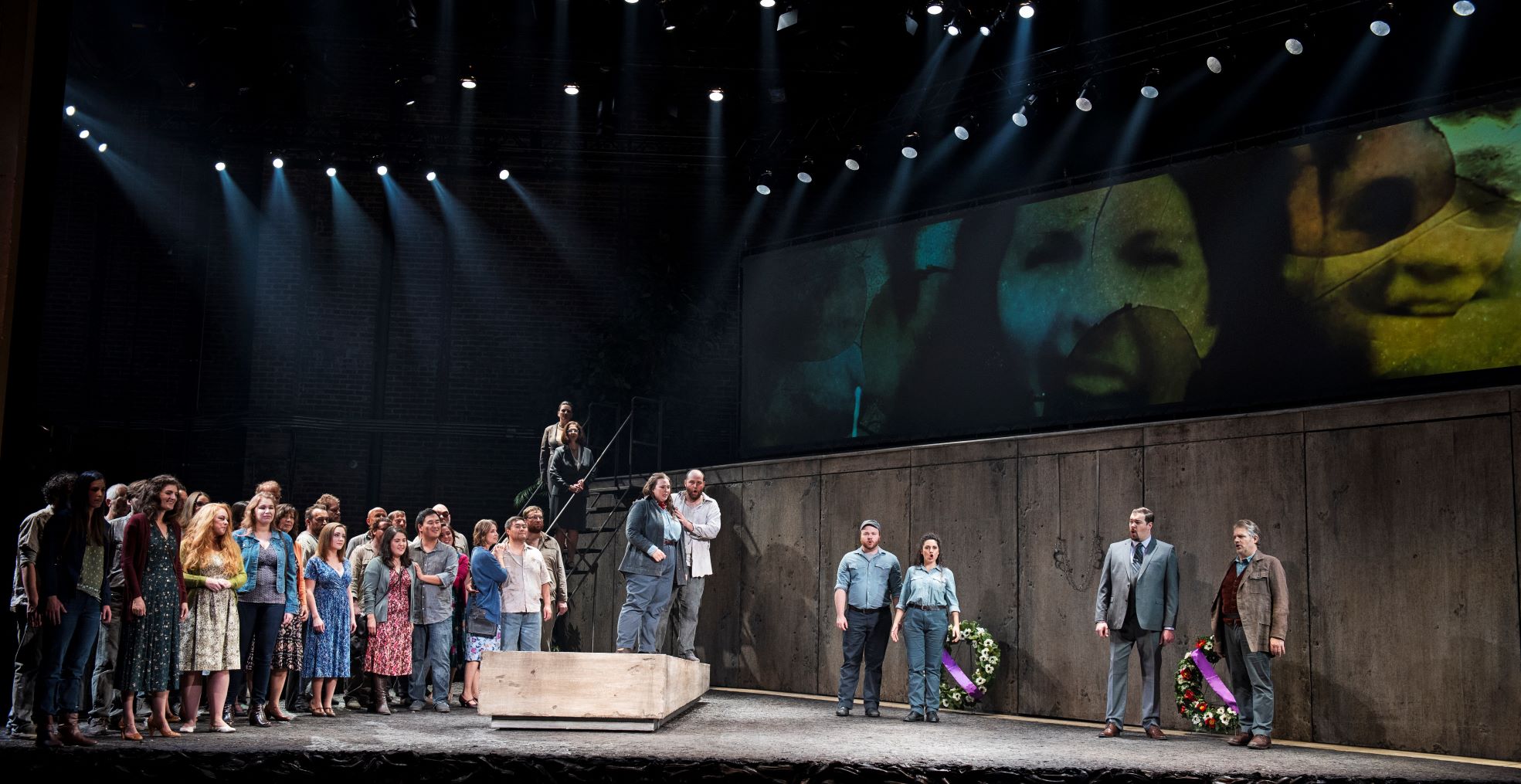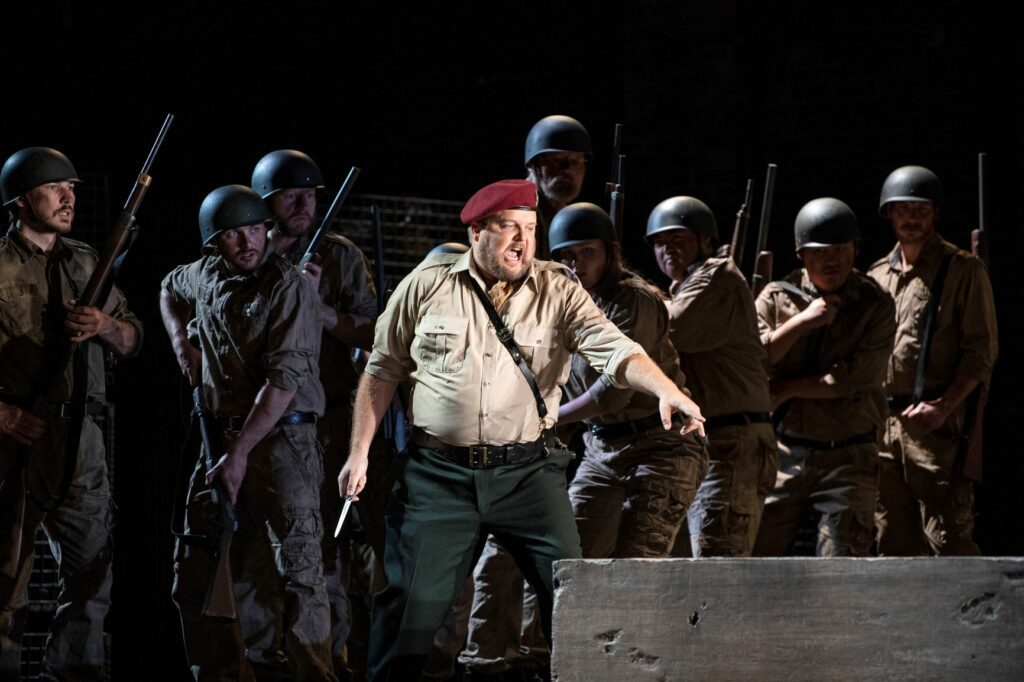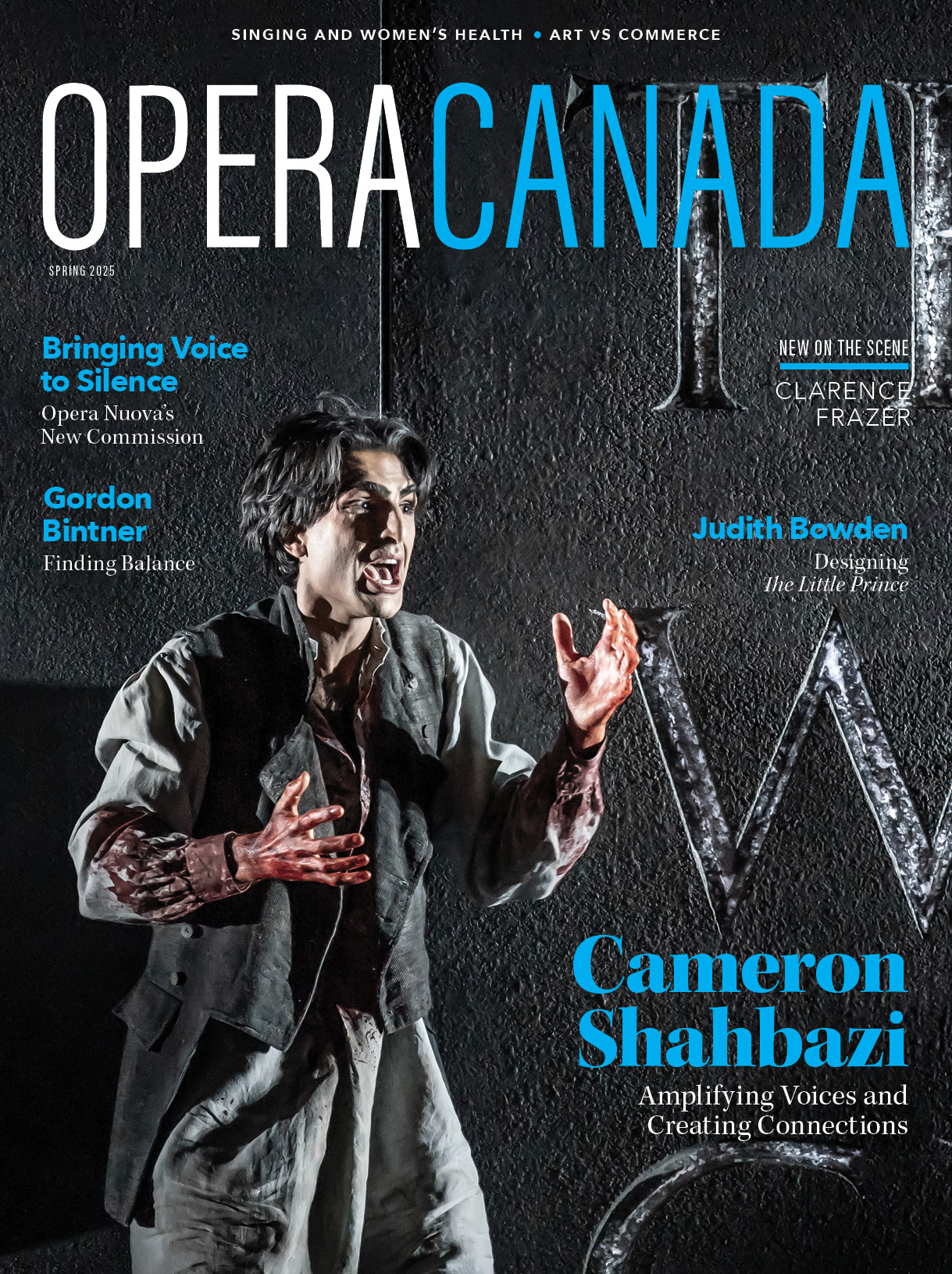Pacific Opera Victoria’s season-opening production of Beethoven’s Fidelio is musically magnificent. From minor roles to major, the voices are superb, and the Pacific Opera Chorus—mostly young, all volunteer—is impressive. The Victoria Symphony, too, played with verve and conviction. Visually, however, the production (seen opening night, Oct. 11), despite an effective contemporary set, was hampered by fussy direction and heavy-handed projections.
Rising Canadian soprano Aviva Fortunata made her role debut as Leonore, the loving wife of Florestan who disguises herself as a boy, Fidelio, to infiltrate the prison where her husband is being held for exposing the corruption of the prison’s malevolent governor, Don Pizarro. It’s a big role to tackle: not only must she sing Beethoven’s music over a heavy orchestration with fanfares galore (this was the composer’s only opera, and while he may not always have been kind to his singers, the result is glorious), she must also convey the tenderness of a woman in love who is willing to do anything to free her man.
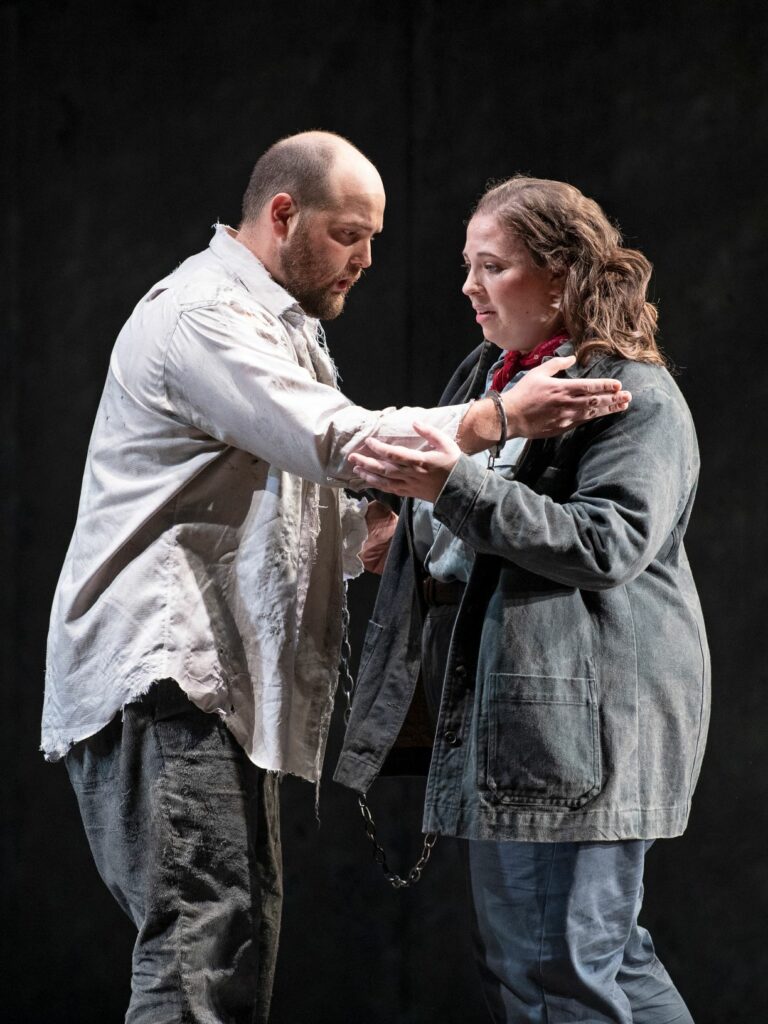
Brent Turner (Florestan) and Aviva Fortunata (Leonore/Fidelio) in Pacific Opera Victoria’s Fidelio. Photo: Emily Cooper
Unleashing a rich and powerful voice, Fortunata dispatched her big Act I aria, “Abscheulicher!”, enormously demanding in its sustained phrases, with ease and control. And throughout the rest of the difficult opera, her voice retained its beauty and suppleness, soaring to the rafters when required. Fortunata does, however, need to work on matching stage presence to her voice. More energy in her facial expressions and body language, especially in such bold a role, would give her performance much-needed impact.
Occupying space—and portraying emotion—came easier to tenor Brent Reilly Turner. As Florestan, he brought down the house with his Act II declaration of his trust in God, “Gott! Welch Dunkel hier!,” and his feverish vision of Leonore coming to save him, “In des Lebens Frühlingstagen.” Turner possesses a beautiful tone and heldentenor-like power, combined with an enviable ability to draw the audience in to feel both his pain and joy.
Bass Valerian Ruminski provided a calm port in the whirlwind of Beethoven’s music, with his natural and affecting portrayal of prison warden Rocco as an essentially decent man caught between achieving justice for others and his own survival. Soprano Miriam Khalil brought brightness and sparkle to the role of Rocco’s daughter Marzelline, while Owen McCausland showed promise as her sometime suitor, Jaquino. As Don Pizarro, baritone Peter McGillivray hovered on the brink of cartoon villainy, but his committed, slightly rugged singing pulled him back from that edge and made him feel genuinely dangerous.
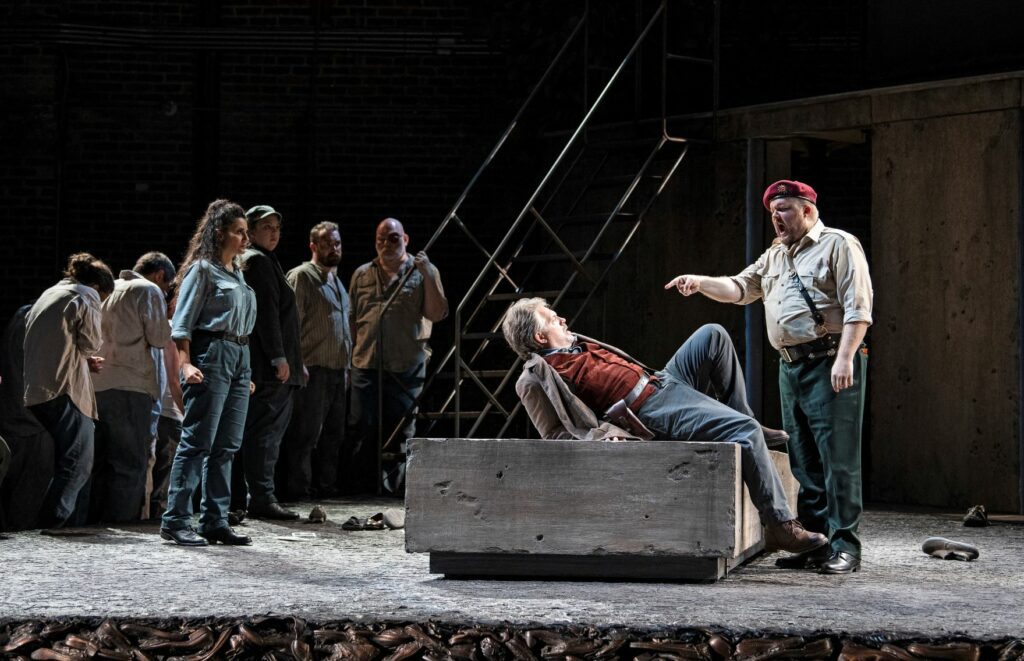
(l-r): Miriam Khalil (Marzelline), Aviva Fortunata (Leonore/Fidelio), Valerian Ruminski (Rocco), Peter McGillivray (Don Pizzaro) in Pacific Opera Victoria’s Fidelio. Photo: Emily Cooper
The presence of four women in the usually all-male Prisoners’ Chorus at the end of Act I felt at first like a distraction: did they really imprison female political prisoners along the men in Beethoven’s day, or today for that matter? But while you could hear their distinctly different tenor sound, it ultimately added to the chorus’s colour. The chorus was equally powerful in the finale, where the prisoners (just the male ones now) are reunited with their women folk and everyone glories in the triumph of justice over tyranny.
Beethoven based Fidelio on a libretto written at the time of the French Revolution, when ideas about freedom and equality were at their peak, and the opera as a whole takes those ideals very seriously. At the same time, however, Beethoven chose to start the opera in a comic vein, with Marzelline rejecting Jaquino in favour of the cross-dressing Fidelio. After Fidelio works his/her way into Rocco’s confidence as his daughter’s new suitor, that sub-plot disappears and the opera moves into solidly dramatic territory. It’s not the most straightforward approach to what ends up being a clarion call for human rights, but it does get there in the end. However, director Wim Trompert decided he could fix this problem, and adjust the story to, as he says in the program, “enable us to identify with the characters,” by providing a backstory.
During the overture and behind a scrim, the principal singers mimed Pizarro’s arrest of Florestan and Leonore’s subsequent absorption into a network of dissidents, including Marzelline and Jaquino, ready to assist in her quest to free her husband from oppression. They help disguise her as Fidelio, and as the scrim goes up, she becomes a silent participant in a game to trick Rocco into believing his daughter has really fallen in love with Fidelio. Not only did this complicated setup completely overshadow the overture, but the high drama of soldiers invading a home and dissidents raising their closed fists made the transition to the jolly first scene—which takes place, we gradually find out, two years after Florestan’s arrest—quite jolting.
And the jolts continued, beginning with the startling thump of perhaps 20 pairs of old shoes dropped onto the stage from on high, just in case we missed the symbolism of the hundreds of shoes already embedded on the stage floor, contained in baskets, and buried under the dungeon in which Florestan is kept. This kind of obviousness—echoing shoes left behind by Jews murdered at Auschwitz—was also evident in the busy stream of video projections by Monica Hernandez, driving home the themes of war, brutality, and imprisonment.
Beethoven’s message is clear in his music. This otherwise greatly satisfying production just needed to give him a little more space to tell it his way.

